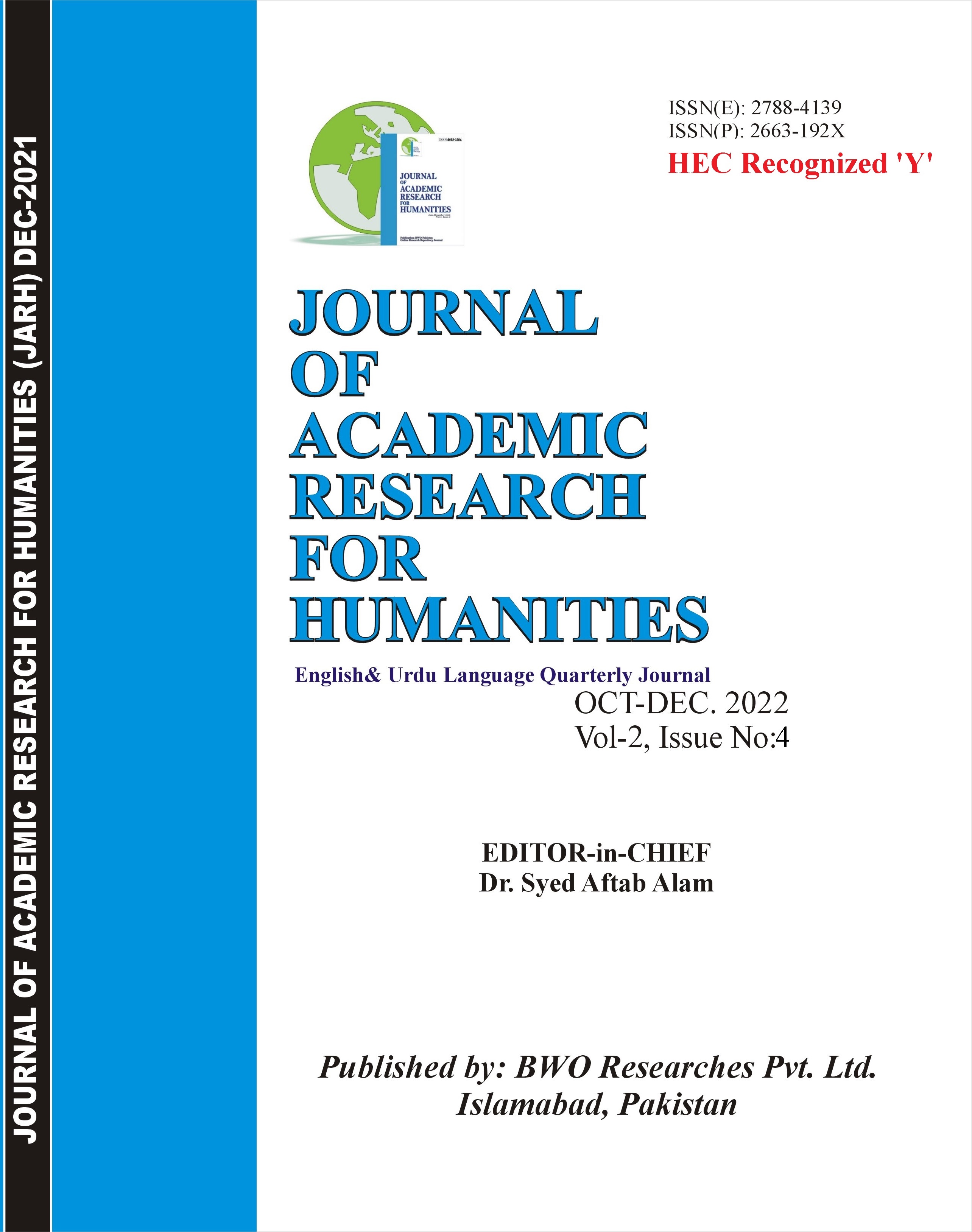Politics of Meat-Eating and Violence against Women and Others: An Ecofeminist Reading of Margaret Atwood’s The Penelopiad

Abstract
This study offers an eco-feminist reading of Margret Atwood’s The Penelopiad and explores it for the oppressive treatment of women, Others and nature. Under the umbrella of eco-feminist philosophy says that the oppression of women and other human others and the domination of nature are critically interconnected and drawing on Carol J. Adam’s politics of meat eating which implies that the violence against women, marginalized other human groups and animals are interlinked because of patriarchal mindset, the study explores how the violence against animals lead to the oppression and victimization of not only of women but also of the lower-class people. Women are treated like animals, tyrannized and butchered to death in a patriarchal society where meat eating is taken as pride. The analysis of the selected text reveals that Penelope and the maids receive brutal treatment from Odysseus, Telemachus and the suitors. The selected text also offers evidence of violence where it is not the male identity but a typical patriarchal mindset which functions to turn human beings into meat/flesh and violence against animals leads to ferocity against women and weak human beings.
Keywords
ecofeminism, value dualism, meat eating, patriarchy, violence, animals, women and low human beings (Others)
References
- Adams, Carol J. (2010). The Sexual Politics of Meat: A Feminist-Vegetarian Critical Theory and Practice. The Continuum International Publishing Group Inc.
- Atwood, Margaret. (2006). The Penelopiad. Edinburg: Canongate Books.
- Belsey, Catherine (2013). “Textual Analysis as Research Method”. Research Methods for English Studies edited by Griffin, Gabrielle. Edinburgh: Edinburgh University Press.
- Gardener, Villanueva Gardener. (2005). The A to Z of Feminist Philosophy. The Scarecrow Press.
- Hastorf, Christine A. (2017). The Social Archeology of Food: Thinking about eating from Prehistory to the Present. Cambridge University Press
- Howell, Corel Ann. (2006). “Five Ways of Looking at The Penelopiad” in Sydney Studies in English 32: 5-18
- Joseph, Sue and Keeble, Richard Lance (ed.). (2016). Profile Pieces: Journalism and the ‘Human Interest’ Bias. Routledge.
- Kheel, Marti. (2004). “Vegetarianism and Ecofeminism” Toppling Patriarchy with a Fork”. Food for Thought: The Debate Over Eating Meat, edited by Steve F. Sapontzis, Prometheus.
- Kohli, Atul. (2012). Poverty Amid Plenty in the New India. Cambridge University Press.
- Martin, Clarice J. (2006). “Womanist Interpretations of the New Testament: The Quest for Holistic and Inclusive Translation and Interpretation” in Feminisms in the Study of Religion: A Reader, edited by Darlene M. Juschka. Continuum
- Maurer, Donna. (1995). “Meat as a Social Problem: Rhetorical Strategies in the Contemporary Vegetarian Literature” in Eating Agenda: Food and Nutrition as Social Problem edited by Maurer Donna and Sobel Jeffery. Aldine De Gruyter
- McFague, Sallie. (1997). Super, Natural Christians: How We Should Love Nature. Fortress Press
- Nhanenge, Jytte. (2011). Ecofeminism: Ecofeminism: Towards Integrating the Concerns of Women, Poor People, and Nature into Development. University Press of America.
- Pepper, David et al (ed). (2003). Environmentalism: Critical Concepts. Routledge.
- Plumwood, Val. (1993). Feminism and Mastery and Nature. Routledge.
- Plumwood, Val. (2002). Environmental Culture: Ecological Crises of Reason. Routledge.
- Potts, Annie and Armstrong, Philip. (2013). “Picturing Cruelty: Chicken Advocacy and Visual Advocacy” in Animal Death, edited by Jay Johnston and Fiona Probyn-Rapsey. Sydney University Press.
- Roberts, Michelle Voss. (2010). Dualities: A Theology of Difference. Kentucky: John Knox Press.
- Stein, Rachel. (2004). New Perspective on Environmental Justice: Gender, Sexuality, and Activism. Rutgers University Press.
- Tandon, Neeru and Chandra, Anshul. (2009). Margaret Atwood: A Jewel in Canadian Writing. Atlantic Publishers and Distributors
- Warren, Karen J. (2000). Eco-feminist Philosophy: A Western Perspective on What It is and Why it Matters. Rowman and Littlefield Publishers
- Yurttas, Hatice. (2017). “Reading The Penelopiad through Irigaray: Rewriting Female Subjectivity” in Journal of Faculty of Letters Cilt/Volume 34 Sayı/Number 1 (Haziran/June2017). https://www.researchgate.net/publication/327755505_Reading_the_Penelopiad_through_Irigaray
- Zhang, Dongmei. (2014). “Where does Mankind Makes Mistakes? – The Reasons for Environmental Crisis in the Handmaid’s Tale” in 2014 International Conference on Social Science and Environmental Protection. DEStech Publication.